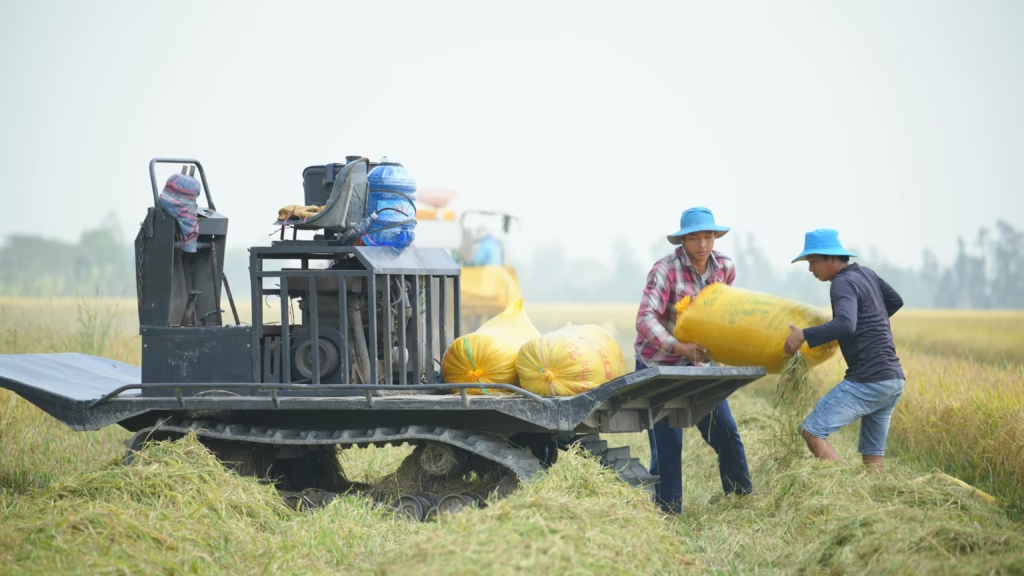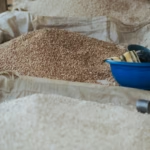
Africa’s agricultural sector is rapidly becoming a critical source for high-quality produce in the global market. From cashew nuts and sesame seeds to hibiscus flowers and shea butter, buyers around the world are increasingly turning to African suppliers for their agricultural needs. But if you’re new to this space, knowing how to source African agri-products can be overwhelming. This guide aims to simplify the process for first-time importers and help you build successful sourcing relationships with confidence.
Why Source African Agri-Products?
Africa is home to rich soils, favorable climates, and a growing network of farmers focused on sustainable practices. Many African countries produce crops in demand across the globe due to their natural farming methods and organic qualities. As sustainability becomes a major concern in international trade, the interest in source African agri-products is higher than ever.
African exports often meet international standards while offering competitive pricing and ethical sourcing models. Many products are cultivated by smallholder farmers, often through cooperatives or contract farming systems, which directly benefit rural communities.
Step 1: Define Your Product Requirements
Before you begin reaching out to suppliers, clearly define what you need. Are you sourcing raw materials like sesame seeds, cashew kernels, or pulses? Or are you looking for semi-processed items such as dried hibiscus petals or shea butter?
Consider the following:
- Product specifications (size, grade, moisture level, etc.)
- Packaging requirements
- Volume and frequency
- Certifications (Organic, Fair Trade, ISO, etc.)
Knowing exactly what you’re looking for will help you communicate clearly with suppliers and avoid costly mistakes.
Step 2: Research Exporting Countries
Different African countries are known for different products. For instance:
- Nigeria and Ghana are major producers of shea nuts.
- Burkina Faso and Sudan export high-quality hibiscus.
- Tanzania and Mozambique are key sources for pulses and legumes.
- Ivory Coast and Benin are renowned for their cashew exports.
Understanding the regional strengths can help you choose the right sourcing destination. This will also allow you to plan for port logistics and customs processes relevant to that country.
Step 3: Identify Reliable Exporters
To successfully source African agri-products, partnering with the right exporter is essential. Look for suppliers that:
- Have a strong reputation in export markets
- Offer full documentation and traceability
- Provide samples and consistent product quality
- Communicate transparently and professionally
You can find such exporters through:
- Trade directories and B2B platforms like Alibaba, Tridge, or ExportHub
- Government-supported trade fairs or chambers of commerce
- Recommendations from other importers or agri-business networks
- Direct outreach to companies like Ahar Group, which specialize in ethical African agri-export.
Step 4: Request Samples and Verify Quality
Never commit to a large order without seeing product samples. Evaluate the sample for freshness, size uniformity, cleanliness, and overall quality. Ask your exporter to include lab reports or certifications where applicable.
In some cases, it’s also worth hiring a third-party inspection agency based in Africa to validate the shipment before dispatch. This small investment can save significant time and money in the long run.
Step 5: Understand Payment Terms and Contracts
As a first-time importer, always clarify payment methods and terms. Common options include:
- Letter of Credit (LC)
- Telegraphic Transfer (TT)
- 50/50 split (50% advance and 50% on bill of lading)
Your contract should also include:
- Delivery timelines
- Incoterms (e.g., FOB, CIF)
- Dispute resolution clauses
- Product specifications and quality tolerance
This helps protect both parties and ensures that your source African agri-products process is smooth and transparent.
Step 6: Manage Shipping and Documentation
Working with a freight forwarder experienced in African exports can make logistics far easier. Most reputable exporters will also assist with key documentation such as:
- Commercial invoice
- Packing list
- Phytosanitary certificate
- Certificate of origin
- Bill of lading
Make sure these documents align with the import regulations of your country.
Step 7: Build a Long-Term Relationship
Once you’ve successfully sourced your first shipment, take steps to build a long-term relationship. Regular communication, fair feedback, and consistent payments can foster trust. Many African suppliers prefer to work with repeat buyers who understand the local challenges and maintain professional partnerships.
This is especially important if you’re aiming for consistency in product quality and long-term pricing.
Challenges to Watch For
While sourcing African agri-products can be highly rewarding, there are challenges to be mindful of:
- Delays during harvest or export due to infrastructure issues
- Exchange rate fluctuations
- Seasonal availability of products
- Customs clearance delays in importing countries
By anticipating these issues and working with experienced partners, you can reduce risk and navigate the learning curve smoothly.
Final Thoughts
The opportunity to source African agri-products is growing rapidly, offering international buyers access to high-demand commodities backed by ethical and sustainable practices. By following a structured sourcing strategy—from understanding your needs to partnering with trusted exporters—you can make informed, profitable, and responsible purchasing decisions.
Whether you’re a health-food brand sourcing hibiscus or a snack manufacturer looking for quality cashews, Africa’s agricultural sector has a lot to offer. With the right approach, your first import experience can mark the start of a successful and long-lasting supply relationship.











Add comment